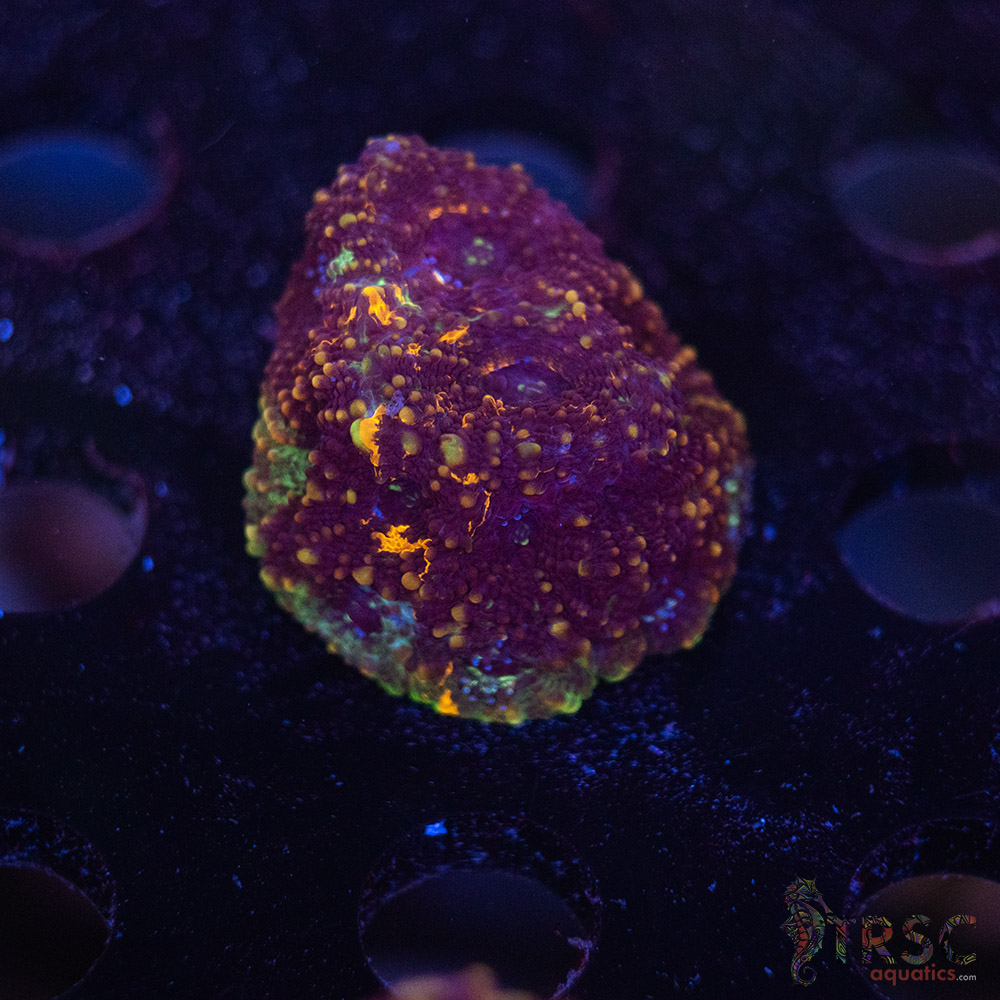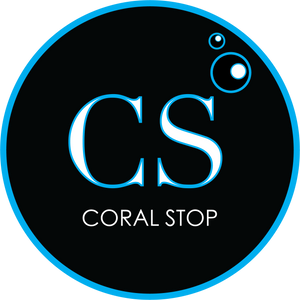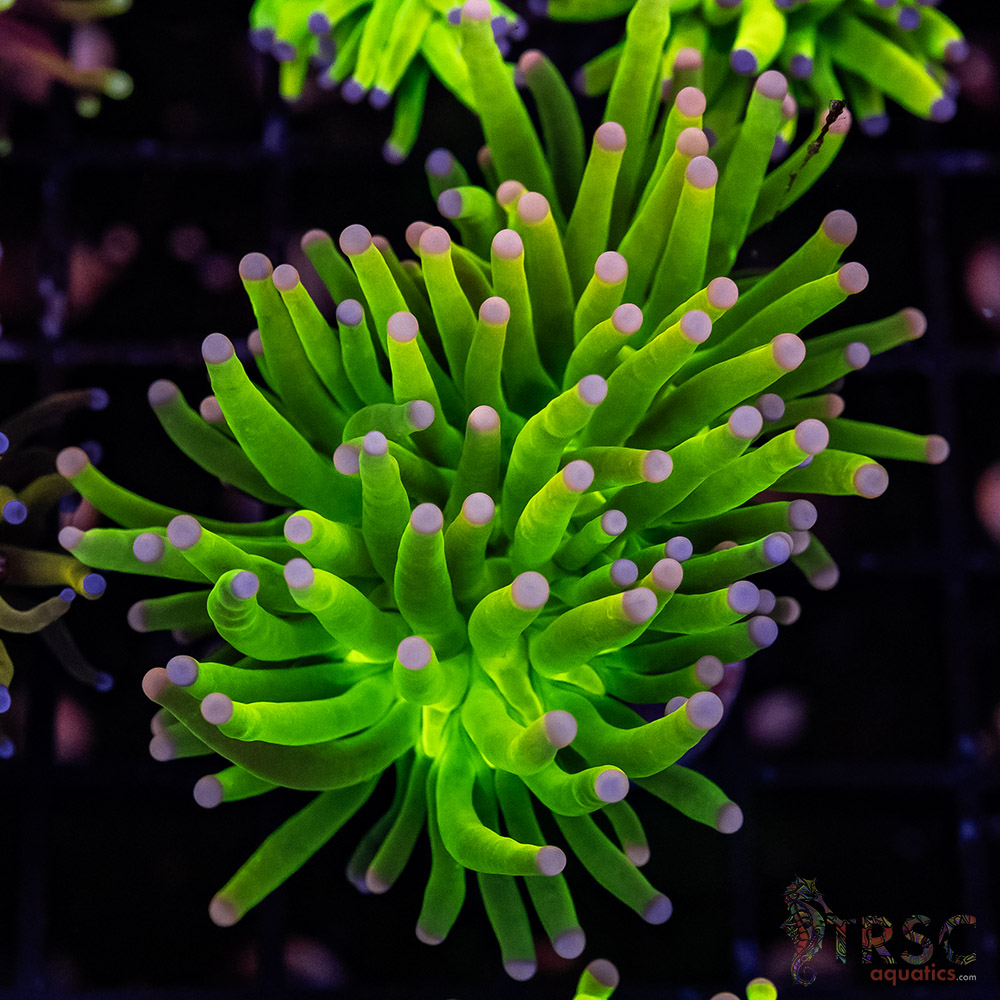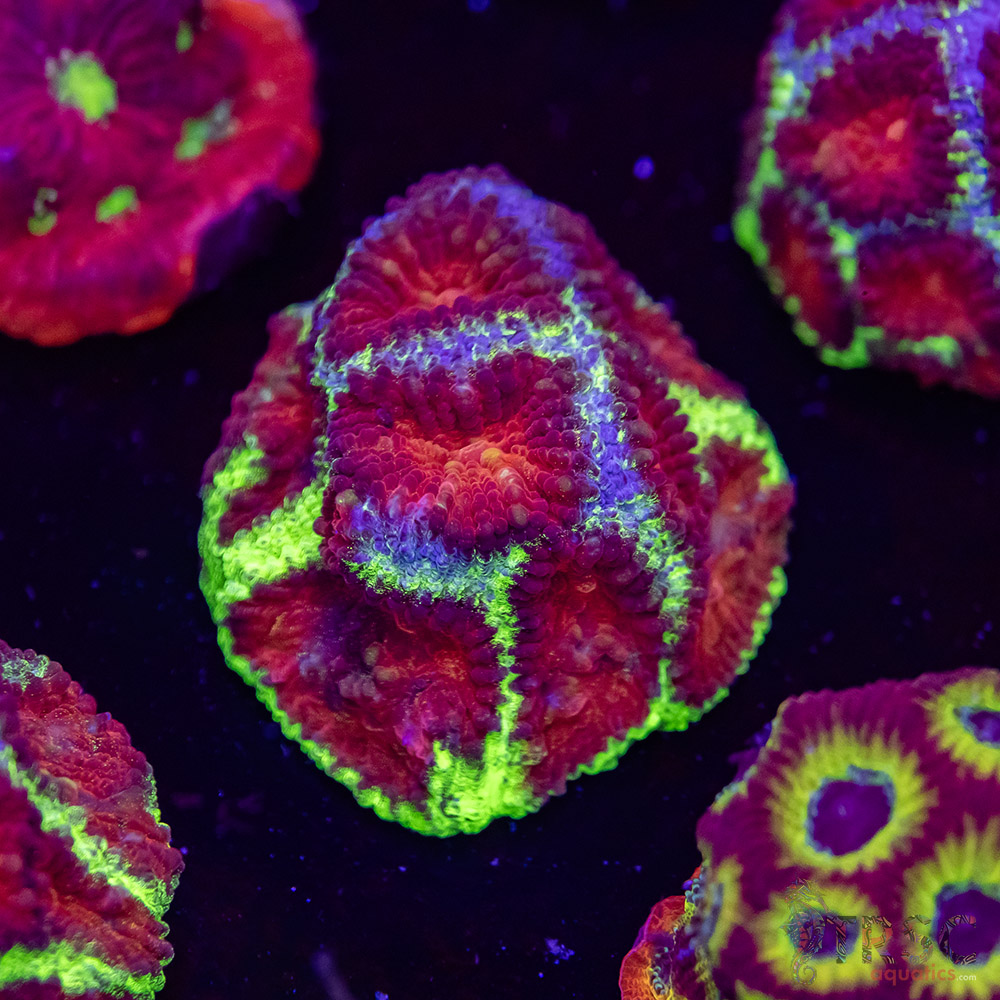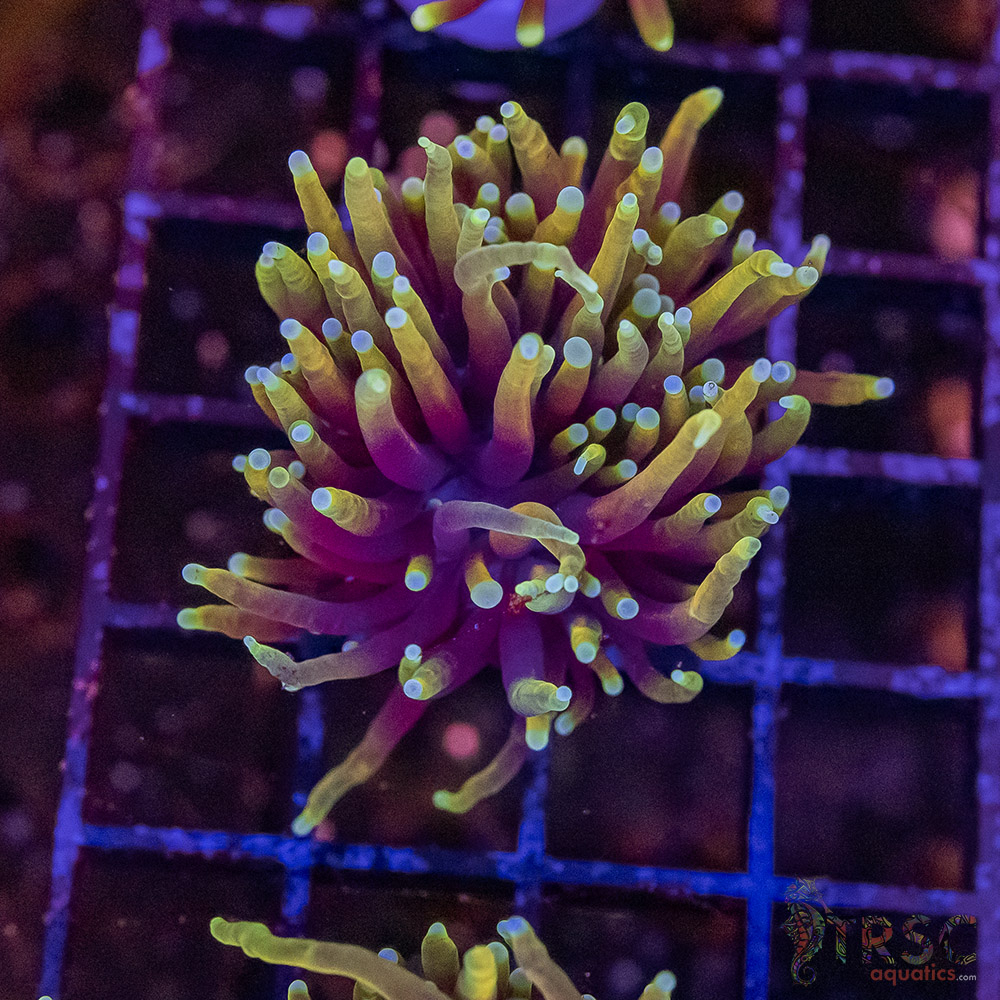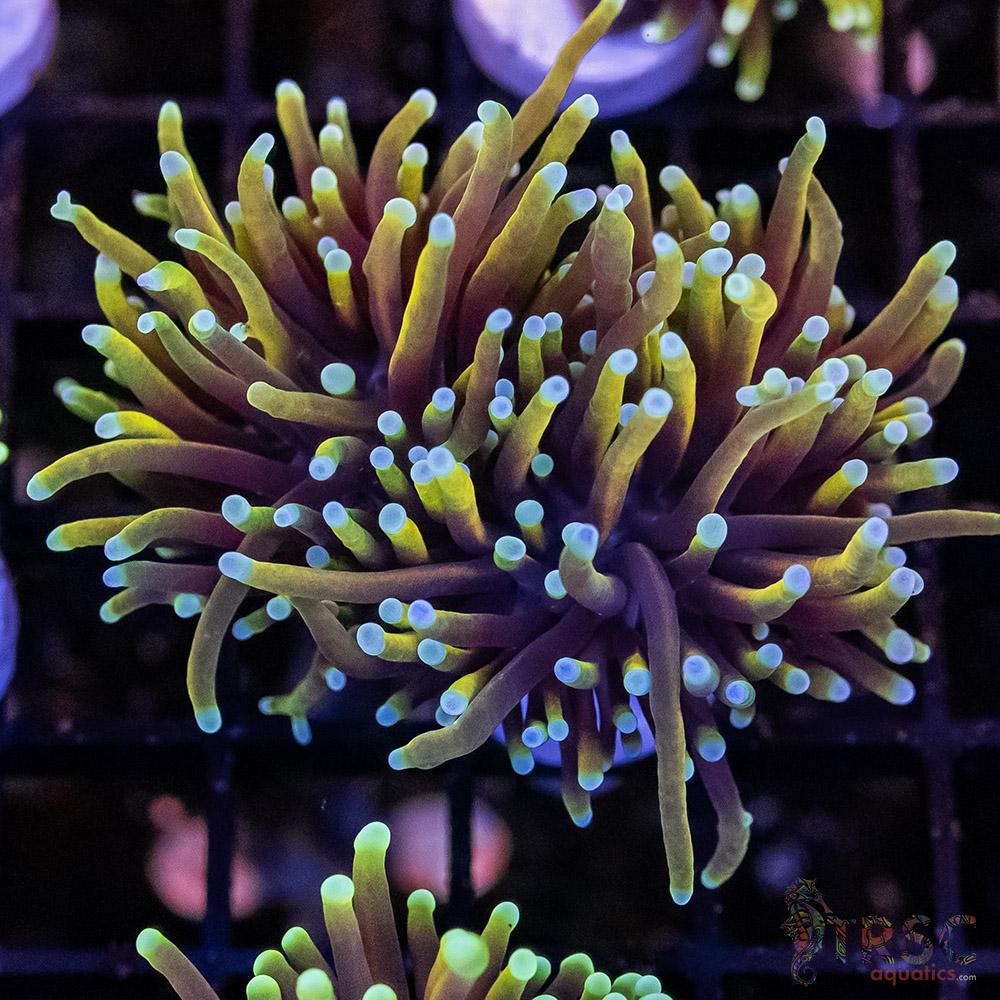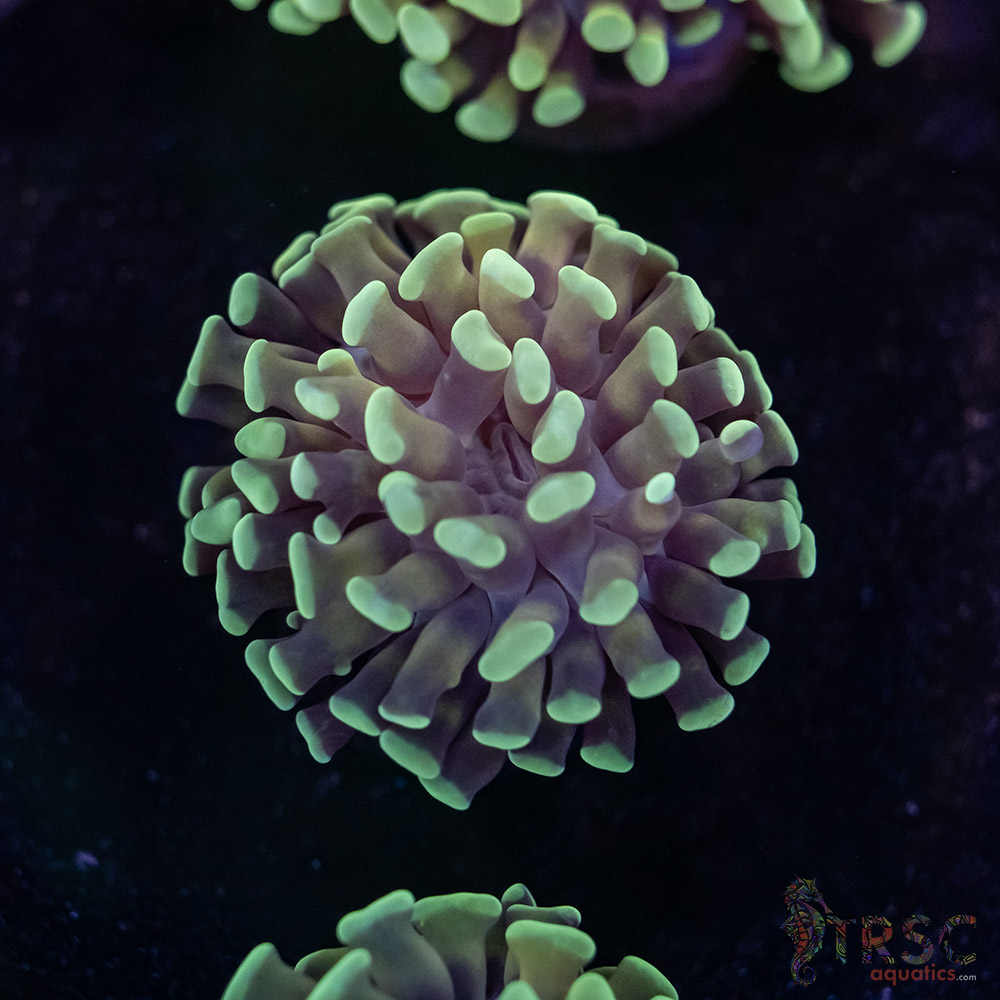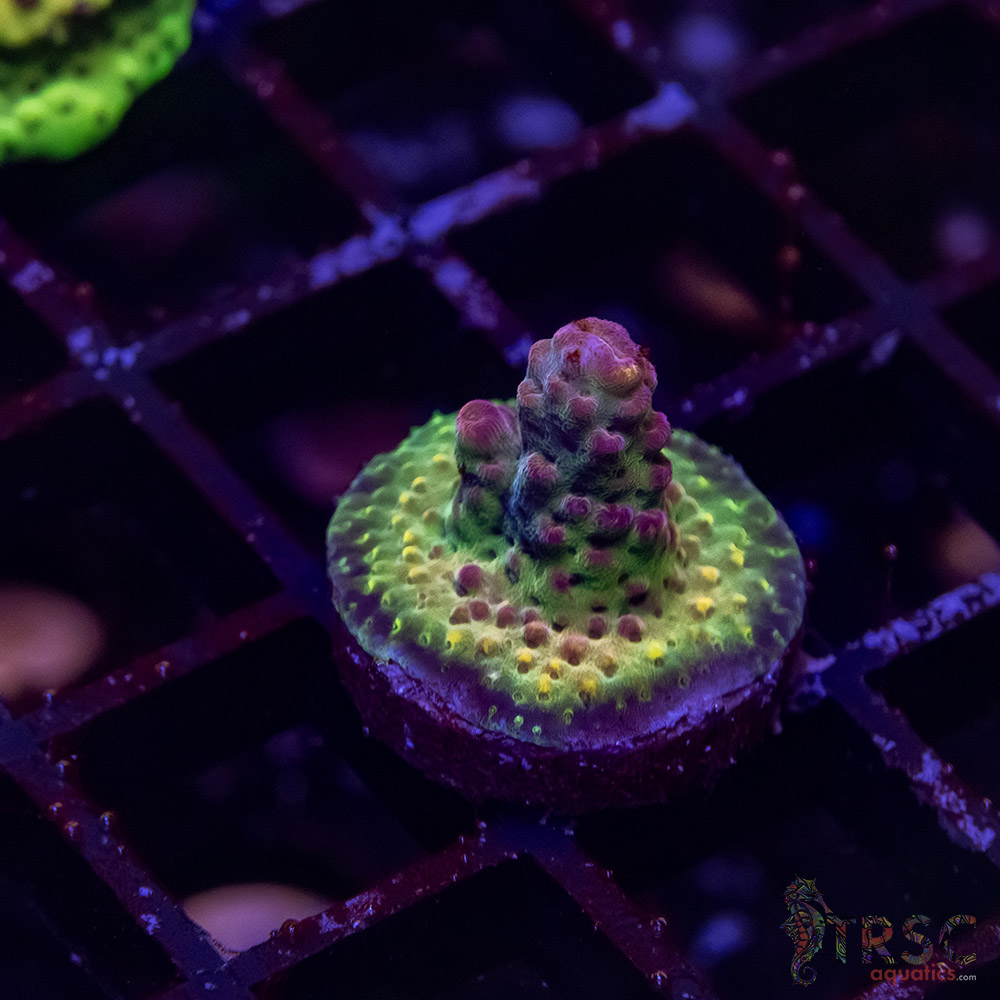Acan Coral Care Guide
Welcome to your go-to guide for caring for Acan corals, including the stunning Acan Lord and the vibrant Acan Echinata. Whether you’re a beginner or a seasoned reefer, these tips will help your LPS corals thrive.
What Are Acan Corals?
Acan corals, short for Acanthastrea, are large polyp stony (LPS) corals known for their bold colors and fleshy polyps. The term “Acan Lord” typically refers to Micromussa lordhowensis, while Acan Echinata refers to Acanthastrea echinata. Both are popular in reef aquariums for their beauty and moderate care requirements.
Tank Parameters
- Lighting: Low to moderate (50–150 PAR). Acan Lords prefer lower light; Acan Echinata tolerates slightly more.
- Water Flow: Moderate, indirect flow to prevent tissue damage.
- Temperature: 76–80°F (24–27°C)
- Salinity: 1.024–1.026 SG
- pH: 8.1–8.4
- Alkalinity: 8–12 dKH
- Calcium: 400–450 ppm
- Magnesium: 1250–1350 ppm
Placement Tips
Place Acan Lords on the sand bed or lower rockwork to avoid excessive light. Acan Echinata can be placed slightly higher but still away from direct flow. Leave space between colonies—both types can be aggressive with sweeper tentacles.
Feeding & Nutrition
While photosynthetic, Acan corals benefit from target feeding 2–3 times per week. Offer:
- Frozen mysis or brine shrimp
- Reef Roids or powdered coral foods
- Liquid coral supplements
Fragging & Growth
Use a coral saw or bone cutters to frag Acan Lords between polyps. Acan Echinata has a denser skeleton and may require a Dremel. Allow frags to heal in low-flow, stable conditions before reintroducing to the display tank.
Common Issues
- Bleaching: Caused by too much light or sudden parameter changes.
- Tissue Recession: Often due to poor water quality or pest irritation.
- Algae Overgrowth: Maintain nutrient balance and flow to prevent buildup.
